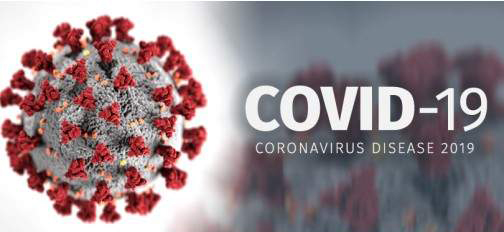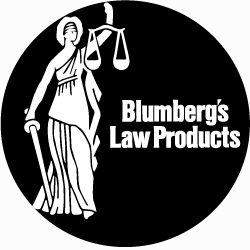
On the scale of pandemics, the novel coronavirus, commonly referred to as COVID-19,[1] is unprecedented and ranks among one of the worst in human history, not only in terms of its virulence but in economic destruction as well.
While scientists hastily work toward developing a vaccine and antiviral drugs to combat COVID-19, world leaders in the countries afflicted by the virus have imposed strict governmental lockdowns, barred travel, closed courts,[2] blocked tourism and employed social distancing measures in an effort to stop the rapid spread of the pathogen.
In the state of New York, Gov. Andrew M. Cuomo recently issued a string of executive orders[3] shuttering schools, courts and nearly all businesses, with only a select few “essential” businesses being permitted to remain open, such as grocery stores and pharmacies. Similar business closures were adopted by other states across the country resulting in, among other things, a massive loss of jobs, an implosion of the health care system, and a precipitous debasing of the stock market, with a likely recession looming on the horizon.
Consequently, on March 27, President Donald Trump signed into a law the Coronavirus Aid, Relief and Economic Security Act,[4] a $2 trillion emergency relief bill seeking to stimulate the United States economy in the wake of COVID-19.
The last time that our planet witnessed a contagion of this magnitude was a century ago during the 1918 H1N1 virus, often mischaracterized as the Spanish Flu.[5] Like the 1918 H1N1 virus, COVID-19 has brought New York City, the epicenter of global commerce, to a screeching halt, with eerily similar quarantining regulations being implemented.[6]
Although only time will tell, experts believe that many New York City industries will be destroyed forever, particularly the brick and mortar establishments that are unable to adapt their businesses to virtual platforms, including the city’s midmarket restaurants,[7] and that business interruption claims, along with bankruptcies, will continue to rise exponentially in the near term.[8]
Analysis of Future Insurance Claims Resulting From COVID-19
Presently, a myriad of the city’s businesses, especially commercial tenants, are exploring rescinding their leases, rent deferments or, alternatively, full rental abatements from their landlords. At the same time, insureds are seeking recovery to account for major business income losses under their policies of insurance due to government-mandated closures.[9]
Unless the New York Legislature passes legislation providing that business interruption claims cover the COVID-19 pandemic, this battle will play out in courts over the course of the next several years, and its outcome will largely depend upon the plain language and meaning employed by the policy at issue.
The Four Corners of the Policy
First, we begin with the premise that “when parties set down their agreement in a clear, complete document, their writing should, as a rule, be enforced according to its terms,” these “considerations are all the more compelling in the context of real property transactions, where commercial certainty is a paramount concern.”[10]
As such, contracts will be interpreted in accordance with their plain and natural meaning.[11] The same rationale holds true for insurance contracts, which are construed in favor of the insured, and where “clear and unambiguous … must be given their plain and ordinary meaning.”[12]
Business Interruption Claims
In particular, with regard to business interruption claims filed by an insured under their policy of insurance, such coverage is typically only applied when a suspension causes a direct physical loss or actual damage to the subject property.
At present, there is no direct authority in New York holding that insurance business coverage is provided in instances where the property in question needed to be remediated using antiviral agents, such as the current case with COVID-19, and whether viral matter attached to surfaces within the property actually constitutes “damage to property.”
There is, however, authority in New York holding that coverage shall be provided to cover the relevant period of restoration of damaged property, but no cases have extended this restoration period to the eradication of bacteria or viruses.[13]
Insureds will invariably seek to extend business loss coverage for the period of time that it takes for their commercial spaces, many of which are unable to be accessed, to completely eradicate the virus and for social distancing orders to be lifted so that they can resume their business operations from the premises.
Of course, if the Legislature does not interject, courts will need to determine whether COVID-19 equates to damage to property invoking business interruption coverage under an insurance policy. Surely, carriers will be seeking to amend their policies of insurance to specifically disclaim business loss coverage for closures caused by pandemics going forward.
Notably, on March 27, the New York Legislature introduced Assembly Bill No. A10226,[14] which expressly provides that an insurance policy’s business interruption provision includes coverage “during a period of a declared state emergency due to the coronavirus disease 2019 (COVID-19) pandemic.” If this bill, which is in committee, passes, it will take the determination of whether COVID-19 constitutes damage to property out of the hands of the courts and broadly apply coverage to all insureds who maintain a policy with business interruption.
The enactment of this bill will then result in litigation by the carriers on constitutional grounds because it would retroactively alter the parties’ contract, and therefore carriers would argue that the law offends the contracts clause of the U.S. Constitution, Article I, § 10.
Interestingly, the Legislature did not enact legislation further clarifying business interruption claims and their application following 9/11, Hurricane Katrina or Superstorm Sandy, but, at the same token, the business closures resulting from COVID-19 are not only localized to the properties actually damaged by the casualty, and instead, mandate widespread indefinite closures.
Unlike damages caused by terrorist attacks and acts of God, which cause physical damage to structures that subsequently need to be repaired or rebuilt, with a pandemic, the virus needs to be totally eradicated from buildings and surrounding structures, and bans against public gatherings rescinded, before businesses can reopen.
Accordingly, the entire framework of the traditional damage to property analysis engaged in by courts to evaluate business interruption claims would need to be liberalized so that a pandemic like COVID-19 qualifies as damage to property even though it may not result in an actual physical loss.
Conclusion
Even though COVID-19 is only a few weeks old, it has already opened the floodgates of litigation, with litigants seeking to excuse performance on their commercial contractual obligations and insurance coverage on their business interruption claims. The influx of litigation regarding these issues will only increase as the pandemic drags on.
Oftentimes, world chaos leads to the development of the law, particularly within the insurance realm, and COVID-19 will be no different. Should the New York Legislature not intervene to clarify whether business interruption includes our current pandemic, then the courts will be grappling over this issue and ultimately deciding whether coronavirus contamination constitutes damage to property, thereby triggering a policy’s business interruption coverage.
Massimo F. D’Angelo is a partner at Adam Leitman Bailey PC.
This article is for general information purposes and is not intended to be and should not be taken as legal advice.
Blumberg is here to help obtain documents needed for the Paycheck Protection Program (PPP) that helps support small businesses during the COVID-19 crisis.
[1] On March 12, 2020, the World Health Organization announced the COVID-19 outbreak as a pandemic; http://www.euro.who.int/en/health-topics/health-emergencies/coronavirus-covid-19/news/news/2020/3/who-announces-covid-19-outbreak-a-pandemic
[2] On March 12, 2020, the Supreme Court of the United States announced its indefinite closure amidst the COVID-19 pandemic, its first disease-related closure since the 1918 H1N1 Virus; https://www.supremecourt.gov/
[3] https://www.governor.ny.gov/keywords/executive-order[4] https://www.congress.gov/bill/116th-congress/senate-bill/3548/text
[5]“There was nothing Spanish about the supremely contagious disease; it was rampant among all Europe’s combatant armies and countries, but under reported, due to military censorship, except in neutral Spain, where coverage was unchecked;” https://www.nytimes.com/2020/03/20/opinion/coronavirus-1918-flu-pandemic-new-york.html; see also https://www.cdc.gov/flu/pandemic-resources/1918-commemoration/1918-pandemic-history.htm
[6] Wallace, Michael. Greater Gotham: A History of New York City From 1989 to 1919. Oxford UP, 2017.
[7] https://www.nytimes.com/interactive/2020/03/27/magazine/david-chang-restaurants-covid19.html
[8] https://www.economy.com/economicview/analysis/378872/Global-COVID19-Tracker-An-Economic-Counterpunch
[9] https://www.restaurant-hospitality.com/legal/thomas-keller-sues-insurance-company-over-coronavirus-business-interruption-claim-his
10] W.W.W. Associates, Inc. v. Giancontieri , 77 N.Y.2d 157 (1990); see also Judnick Realty Corp. v. 32 West 32nd Street Corp. , 61 N.Y.2d 819 (1984); Oxford Commercial Corp. v. Landau , 12 N.Y.2d 362 (1963).
[11] Mercury Bay Boating Club Inc. v. San Diego Yacht Club , 76 N.Y.2d 256 (1990).
[12] United States Fid. & Guar. Co. v. Annunziata , 67 N.Y.2d 229 (1986).
[13] Roundabout Theatre Co., Inc. v. Continental Cas. Co. , 302 A.D.2d 1 [1st Dep’t 2002].
[14] The State of New Jersey proposed similar legislation (New Jersey Assembly Bill A-3844), which was retracted prior to being submitted to the full assembly. https://www.njleg.state.nj.us/2020/Bills/A4000/3844_I1.HTM.
